30 Best Immune-Boosting Foods

Key Takeaways
As the weather gets colder, you might notice that you get sick a little more often than usual. This is partially because cooler weather can impair your immune system. Luckily, there are some ways you may be able to combat cold and flu season by boosting your immune system, and one of these ways is your diet!
You’ve probably heard that vitamin C is great when you’re under the weather. But there are a lot of other nutrients that can also be beneficial when it comes to immune health.
Read on for 30 of the best immune-boosting foods you might want to add to your diet this winter, plus learn more about the impact your nutrition can have on your immune system.
Can Your Diet Affect Your Immune System?

The immune system is your body’s complex network of cells, organs, and tissues that work together to fight infection and disease. Your diet can play a huge role in a healthy immune system, since every cell and metabolic process in your body needs adequate nutrition to function.
The nutrients you consume through food allow your immune cells to respond quickly both to outside invaders, like viruses and bacteria, and avoid chronic inflammation. And when you do get sick, your body requires extra energy from food sources and your body’s nutrition stores to fight off infection.
There are many vitamins, minerals, amino acids, and fatty acids available from food sources that can boost your immune system, and each one can be beneficial in different ways. Aside from isolated nutrients, dietary patterns as a whole are very important to consider when appreciating the impact of diet on immune function.
So, which foods can give your immune system a boost? Keep reading to find out.
30 Foods that May Boost Immune Health
Here's our list of the 30 best immune-boosting foods to add to your diet. Stick around until the end for a breakdown of all the nutrients found in these foods and what the science says about their effects on immune health.
Fruits and Vegetables
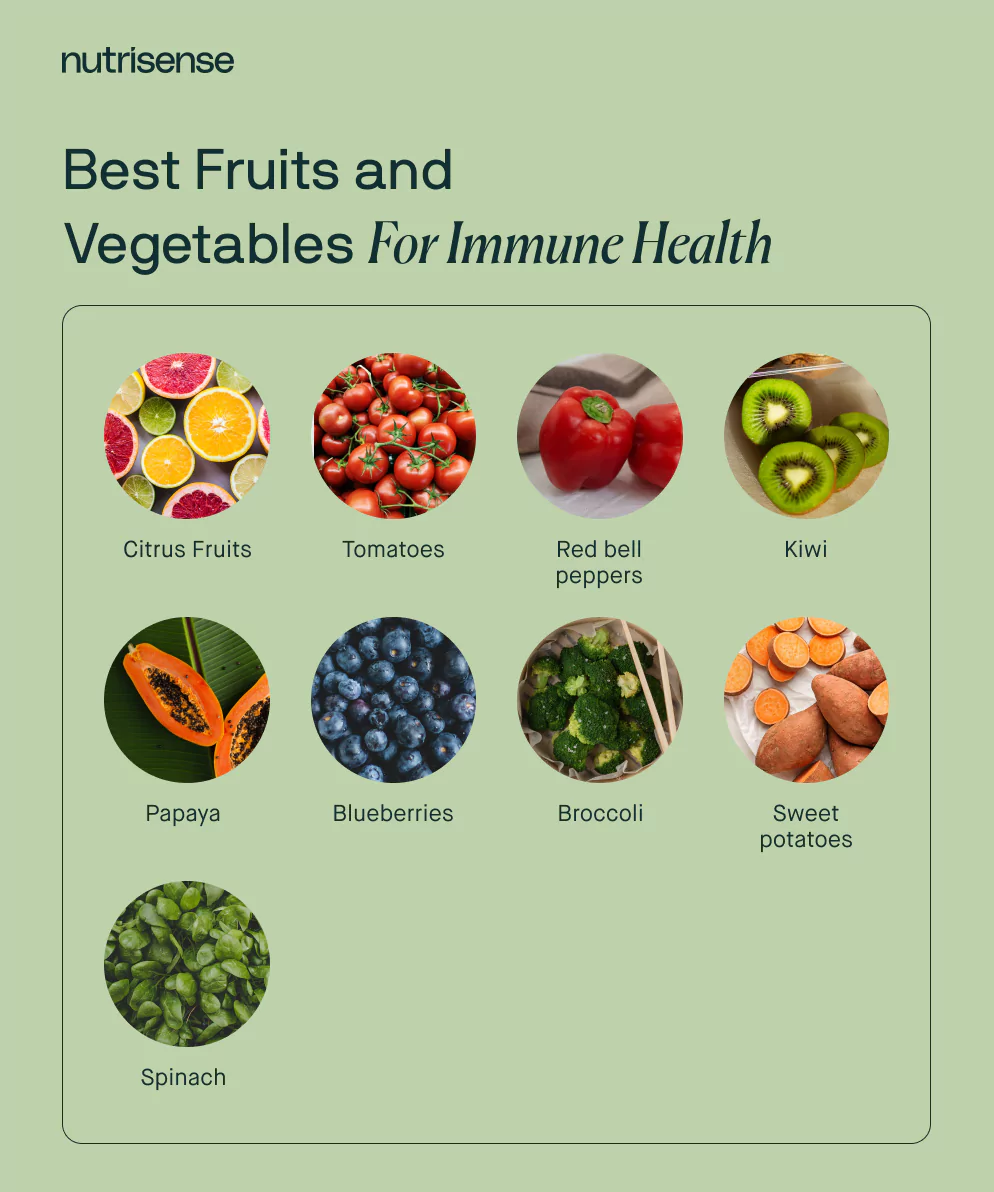
- Citrus Fruits
Citrus fruits, like oranges, grapefruit, lemons, and limes are excellent sources of vitamin C. A single orange has about 138 percent of your daily recommended vitamin C intake, and a grapefruit contains 128 percent!
- Tomatoes
Tomatoes are another fruit full of vitamin C, and they also pack a significant amount of beta carotene. One medium tomato contains about 20 percent of your daily recommended vitamin A intake (in the form of beta-carotene), and 28 percent of your recommended vitamin C.
- Red Bell Peppers
You may be surprised to learn that red bell peppers have almost three times the vitamin C of an orange. One red bell pepper contains 325 percent of your daily recommended vitamin C intake, as well as 67 percent of your recommended intake of vitamin A (in the form of beta-carotene).
- Kiwi
Kiwifruit contains vitamin C, carotenoids, polyphenols, and dietary fiber, all of which have beneficial effects on the immune system. Studies also show that they may reduce the incidence and severity of upper respiratory tract infections. Kiwis are also rich in folate, a B vitamin that also benefits the immune system.
- Papaya
Like many other fruits on this list, papaya is loaded with vitamin C—just one cup has 147 percent of your daily recommended value. It’s also a source of fiber, beta-carotene, and folate.
- Blueberries
Blueberries are rich in antioxidants called anthocyanins, which may help reduce oxidative stress and increase anti-inflammatory cytokines. They may also increase natural killer, or NK, cell count. NK cells are immune cells that can kill tumor cells and cells infected with viruses.
- Broccoli
Broccoli is rich in beta-carotene and C, and also has a good amount of dietary fiber. It’s important to note that vitamin C content may be diminished by prolonged heat or moisture exposure, in which case the cooking method may be good to consider.
- Sweet Potatoes
Sweet potatoes are packed with beta-carotene—one medium sweet potato contains a whopping 438 percent of your daily recommended value. Orange sweet potatoes are also rich in beta-carotene, and purple sweet potatoes are rich in anthocyanins.
- Spinach
Spinach is rich in beta-carotene and C: one cup of raw spinach contains 377 percent of your daily recommended vitamin A value, and 29 percent of your daily vitamin C requirement. Spinach also contains antioxidants that help fight free radicals and reduce oxidative stress.
Spices and Herbs

- Garlic
Garlic contains allicin, a compound that helps maintain the homeostasis of the immune system and stimulates macrophages, lymphocytes, natural killer cells, and other cells of the immune system. Studies also show that garlic may be able to fight off viruses by blocking viral entry into our cells. However, many of these studies were done on cell cultures in vitro and more research is needed for in vivo human studies.
- Ginger
Ginger contains many bioactive compounds, including gingerol, that may have powerful antioxidant and anti-inflammatory effects. It also has microbial properties that can help in the treatment of infectious disease. Like garlic and other bioactives, many of these studies were done in vitro and more thorough in vivo studies are needed.
- Turmeric
Turmeric, a bright yellow spice, contains curcumin, a polyphenic compound that may have antiviral, antifungal, and antimicrobial properties. Curcumin in moderate amounts has also been shown in preliminary studies to modulate the activation of B and T cells, macrophages, natural killer cells, and other cells of the immune system, though more research is needed.
- Rosemary
Rosemary contains many bioactive compounds, including rosmarinic acid and carnosic acid, that have antimicrobial, anti-inflammatory, antioxidant properties. These bioactive compounds have primarily been studied in vitro and higher quality in vivo studies are needed to confirm these effects in the human body.
- Fennel
Fennel is a flowering herb that is part of the carrot family. It contains volatile oils that have been shown to exhibit high anti-inflammatory properties in vitro. However, their effect on the immune system and neutrophil function is still uncertain.
Nuts and Seeds
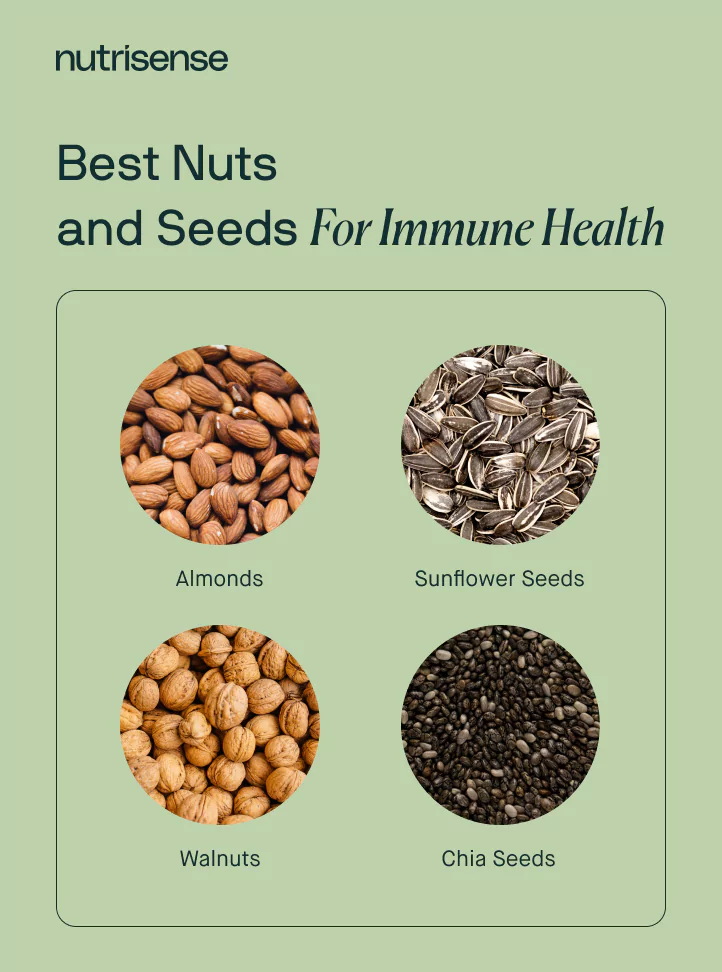
- Almonds
Almonds are rich in vitamin E, an antioxidant that prevents oxidative damage and fights off free radicals in your body. Vitamin E in adequate (but not excessive) amounts also enhances the function of the immune system and may reduce the risk of infection. It can improve T cell function, lymphocyte proliferation, and NK cell and macrophage activity.
- Sunflower Seeds
Sunflower seeds are also rich in vitamin E—just one ounce contains 49 percent of your daily recommended value. Vitamin E also seems to have an especially positive effect on age-associated immune system dysfunction.
- Walnuts
Like sunflower seeds and almonds, walnuts are rich in vitamin E—100 grams provides 140 percent of your daily needs. Walnuts are also rich in riboflavin and folate.
- Chia Seeds
Chia seeds are another source of vitamin E, along with folate, riboflavin, and zinc. Here are some dietitian-approved chia seed recipes you can use to add more chia seeds to your diet.
Other Foods
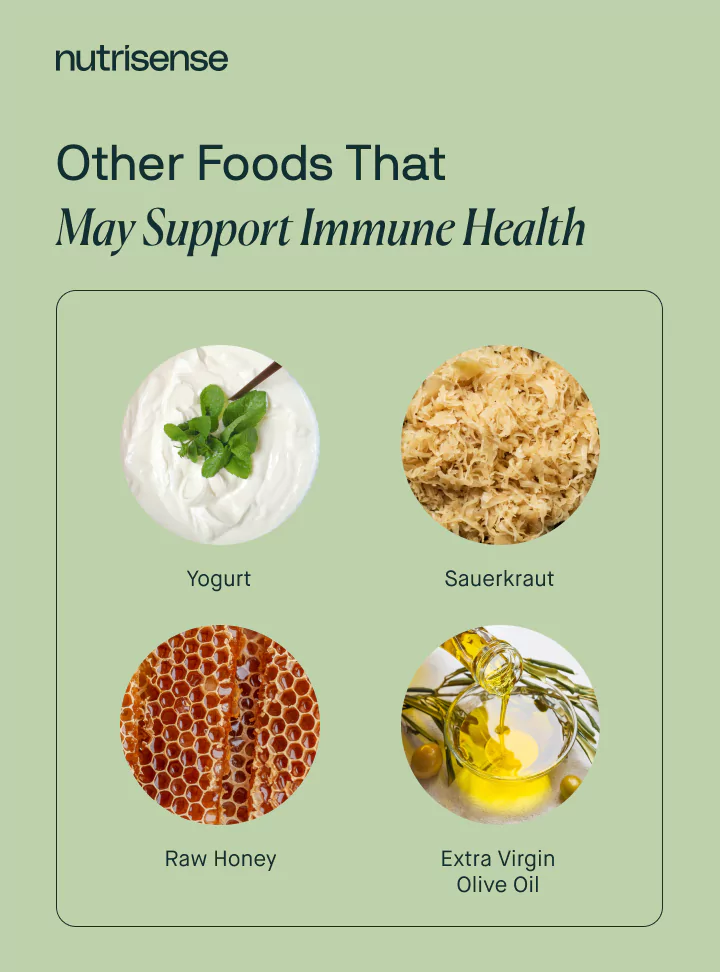
- Yogurt
Yogurt is a fermented milk product that is rich in active cultures, like the probiotics Lactobacillus and Bifidobacterium, which are shown to enhance immunity.
- Sauerkraut
A dairy-free fermented food alternative, sauerkraut is a traditional fermented form of cabbage that may offer probiotic support. However, as with all fermented foods and probiotic supplements, not everyone may tolerate them. Some people may be more likely to experience negative side effects from higher or regular intake of these products.
- Raw Honey
Honey is widely used for its medicinal properties. It has been shown to exert antioxidant, antimicrobial, anti-inflammatory, and anticancer effects in vitro. It may also activate the immune response to injection and increase the creation of B and T cells, natural killer cells, antibodies, and other immune cells. However, more in vivo studies are needed to determine the effects in the human body.
- Extra Virgin Olive Oil
Studies show that olive oil is capable of suppressing the immune system, which may improve inflammation and be beneficial for those with autoimmune disorders. Sometimes, this suppression can have the unwanted effect of also reducing protection against infectious microorganisms. Olive oil, however, has been shown to suppress the immune system without reducing immune system resistance to infections. However, more high-quality studies in vivo are needed.
Protein

- Chicken
Chicken is a great source of protein, which is crucial for immune system function. It is also a decent source of vitamin B6: three ounces of chicken breast contains 29 percent of your daily value. Vitamin B6 has been shown to help regulate inflammation and promote B and T cell and hemoglobin formation.
- Turkey
Turkey is another source of protein and vitamin B6—three ounces contains 25 percent of your daily B6 needs.
- Salmon
Salmon is a good source of protein, as well as immune-boosting vitamin D. A four-ounce portion of sockeye salmon contains around 800 IU of vitamin D. Salmon is also rich in omega-3 fatty acids, which may beneficially regulate the activity of immune system cells.
- Oysters
Oysters are the richest natural source of zinc: just three raw oysters contain 291 percent of your daily recommended value, and three cooked oysters contain 256 percent.
- Eggs
Eggs are a great source of protein, as well as one of the few natural food sources of vitamin D. Eggs also contain both provitamin A (beta-carotene) and preformed vitamin A, zinc, and many different types of B vitamins, including riboflavin.
Drinks

- Water
Good hydration is essential to the maintenance of every system in your body. It helps your body absorb and break down nutrients, carries nutrients and oxygen to your cells, protects your organs and keeps them functioning, and regulates your body temperature. These are all important for a working immune system.
- Ginseng Tea
Ginseng is a root that has widely been used around the world for its medicinal properties. In certain amounts, it has been shown to help maintain homeostasis of the immune system, enhance resistance to illness and microbial attacks, and influence and control immune system cells.
- Green tea
Green tea is rich in flavonoids, a type of antioxidant that has anti-inflammatory effects and may improve the balance of the gut microbiome. However, research in this area is very limited and more randomized controlled clinical trials are needed to understand how these bioactives modulate immune activity in the human body.
Which Nutrients Can Boost Immunity?
As you can see, there are many different foods that may have a positive impact on your immune health. However, while a number of nutrients found in these foods have been shown to support immunity, it’s also important to consider that more of a beneficial food isn’t always better.
Researchers advise sticking to daily recommended doses for each nutrient, especially if you are taking supplements. Higher-than-recommended intakes of any nutrient have not been shown to confer additional health benefits (and may even pose more risk at higher dosage). We’ll talk more about this below!
With that said, here are some of the most common nutrients found in the foods listed above that can support your immune health and help fight off infection.
Vitamin C
Vitamin C helps to maintain our immune system in a few ways. It supports the epithelial barrier, which are the external surfaces of our gastrointestinal tracts, respiratory tracts, and skin that keep out invading microorganisms and pathogens. It also promotes oxidant scavenging activity of the skin, which protects against environmental oxidative stress.
This vitamin can also enhance differentiation and proliferation of B and T cells, which are white blood cells that play important roles in the immune system, like destroying dangerous cells and producing antibodies. Vitamin C deficiency has been shown to result in impaired immune function and higher susceptibility to infections.
There may be decreased severity and duration of colds when vitamin C is consumed at doses at or above 200 milligrams per day, with recommendations for people to obtain this primarily from their diet. For people exposed to brief severe periods of physical exertion, supplemental vitamin C in higher amounts has been shown to be immune-supportive.
However, studies have shown that vitamin C supplementation does not reduce the incidence of colds in the general population. More high-quality randomized controlled trials are needed.
As with any nutrient, more isn’t always better. Higher dose vitamin C supplementation (1000 milligrams daily) in the form of ascorbic acid has been associated with an approximately twofold increased risk of kidney stones.
Higher amounts of vitamin C may also act as pro-oxidants, the opposite of their lower-dose antioxidant function.
Vitamin D
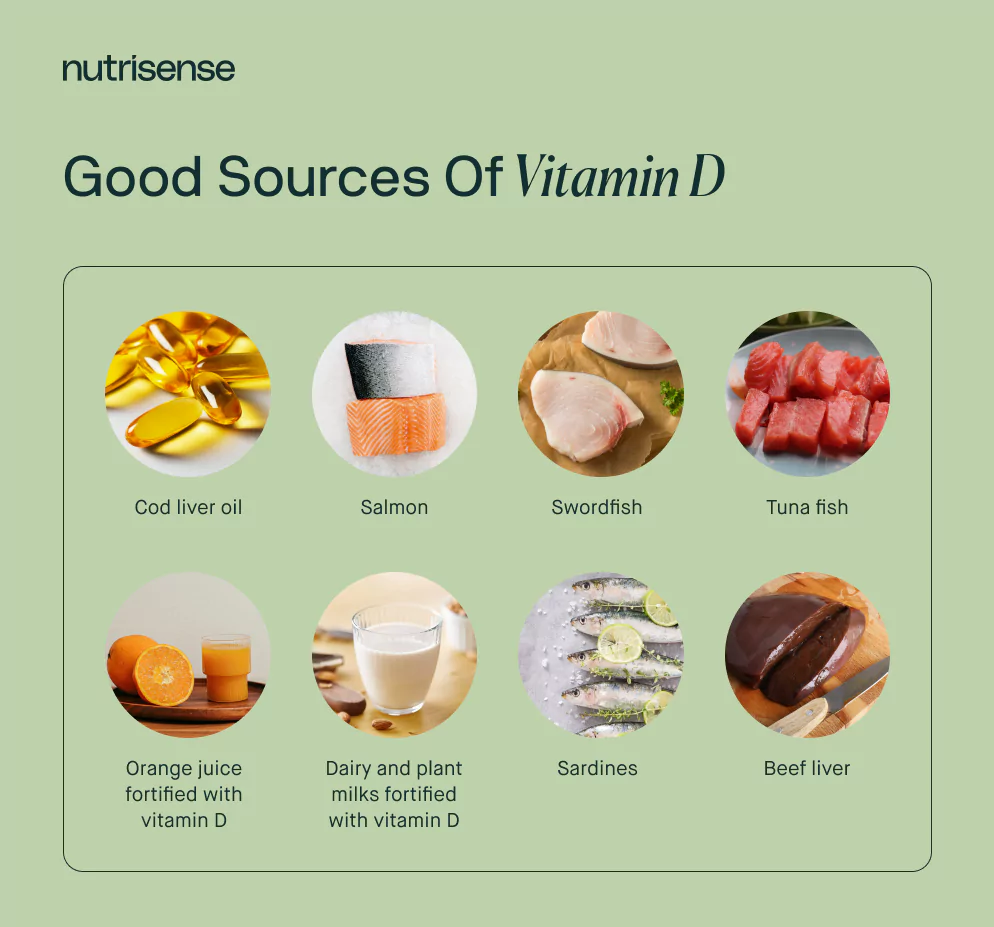
Vitamin D is another vitamin that helps maintain our immune systems. Vitamin D can up-regulate anti-microbial peptides, which can help clear bacteria from barrier sites and immune cells.
Like vitamin C, vitamin D also has an effect on T cell activation. Immune cells can also activate vitamin D in the body, which plays a role in maintaining the homeostasis of our immune system. Vitamin D deficiency has been shown to increase susceptibility to chronic infections and autoimmune diseases.
Can you get too much vitamin D? The short answer is yes. Researchers know that vitamin D not only supports immune health, but also can be good for bone health. However, a 2010 randomized controlled trial showed that intake of very high doses of vitamin D in older women was associated with more falls and fractures.
Taking too much vitamin D in supplement form can lead to hypercalcemia and toxicity. Hypercalcemia may result in calcium building up in the blood, arteries, and soft tissue. It may also result in higher risk for kidney stones.
Studies show that the short-term ingestion of up to 10,000 IU/day of vitamin D3 is associated with the maintenance of 25(OH)D serum concentrations below 50 ng/mL (125 nmol/L). This is a serum concentration below which toxicity risk is very minimal.
Each person may respond differently to different doses of vitamin D supplements, so it’s always important to work with your doctor when navigating the question of supplement dosage.
Vitamin A
Vitamin A has a critical role in enhancing immune system function. It is even involved in the development of our immune system.
This vitamin plays a regulatory role in cellular immune response, and also helps in the formation and maintenance of the epithelial barrier. It is also an integral part of the mucus layer of the respiratory tract and the intestine, improving their immunity function.
Retinoic acid, a form of vitamin A, can inhibit the development of inflammatory cells and promote T cell activation. However, as with other nutrients discussed here, it’s also possible to get too much of a good thing.
Vitamin A toxicity is a possibility with higher intakes. Some research suggests that sub-toxicity without clinical signs of toxicity may be a growing concern as well and is more likely in individuals consuming multiple supplemental forms of vitamin A, including those from fortified food products.
B Vitamins
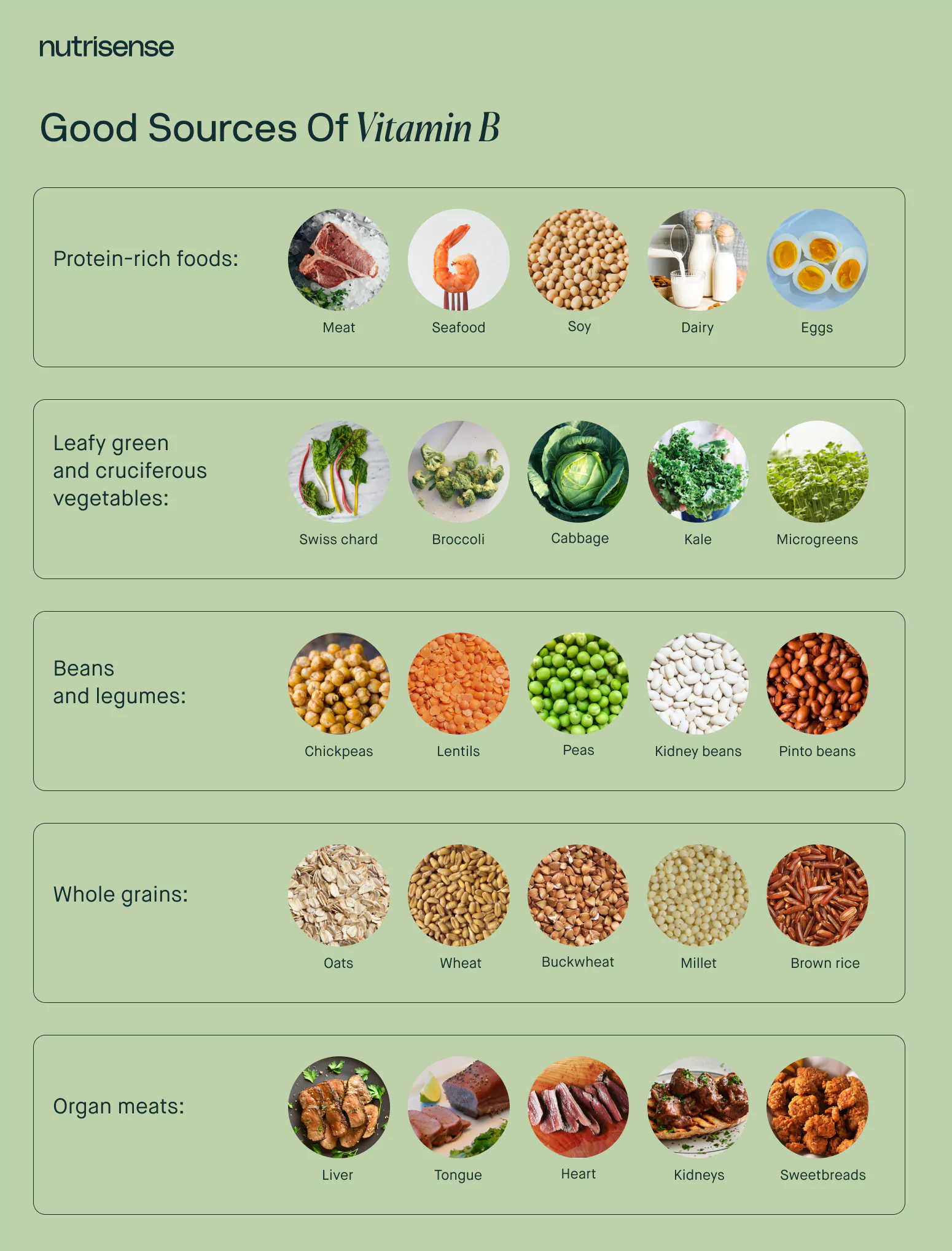
B vitamins are a group of vitamins that are involved in many functions, including:
- Helping you get energy from food
- Aiding cell growth and development
- Supporting DNA production
- Supporting nerve health
They are also involved in immune system function, particularly vitamin B2 (also called riboflavin). Vitamin B2 may also have antioxidant and anti-inflammatory effects, which can support immune health. It is also involved in T cell activation, differentiation, and proliferation.
Adequate intake of B vitamins in general has also been shown to support the normal activity of macrophages, which are cells that detect and fight off harmful bacteria.
Beta-Carotene
Beta-carotene is a carotenoid, which is a class of pigments that gives red, yellow, and orange vegetables their pigment. Beta-carotene is what is known as a provitamin A carotenoid, which means it is turned into the retinol form of vitamin A in your body.
In most cases, carotenoid sources must be converted to the retinol and related forms in order to be active in the body. However, the immune-supportive effect of certain carotenoids may be partly independent of their provitamin A activity.
Since larger studies have not shown beneficial effects of beta-carotene supplementation, more emphasis is placed on achieving optimal levels within a well-balanced diet.
Zinc
Zinc is a nutrient that in adequate amounts can help your immune system fight off invading bacteria and viruses. Zinc is important for the normal development and function of our immune cells.
The antioxidant activity of zinc is thought to prevent free-radical damage and reduce inflammation in the body. Zinc deficiency has been shown to adversely affect the function of the immune system, in particular the growth and function of both T and B cells.
However, in excessive amounts, zinc may actually impair the immune system as well as impair the body’s utilization of copper. This is why it’s important to ensure adequate, but not excessive zinc intake.
Like with all vitamins and minerals, experts recommend getting the majority your zinc through whole food sources. Consult a registered dietitian or medical professional for guidance before making significant dietary changes.
Probiotics
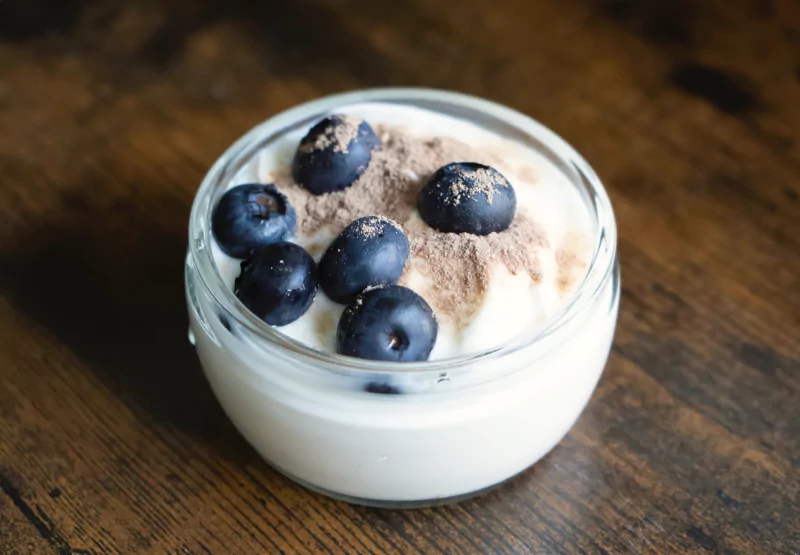
Probiotics are live microorganisms that live naturally in our bodies and are also found in various foods, like yogurt and fermented foods. The most common bacteria found in probiotic products are Lactobacillus and Bifidobacterium.
Probiotics affect both the innate and adaptive immune system. They promote the production of bacteriocins, which can kill harmful bacteria, and short chain fatty acids, which can suppress inflammation.
These microorganisms can lower the pH of the gut, making it more acidic, which can aid in killing pathogens. They can also stimulate the function of the mucosal barrier and modify T cell responses, and maintain homeostasis of cytokine responses.
Protein
Protein is crucial for immune system function. This is because amino acids, the molecules that form proteins, are essential for the production of immune proteins, like cytokines and antibodies.
Amino acids are involved in the regulation and activation of T and B cells and have also shown antioxidant activity. Protein deficiency is associated with an impaired immune system, with particularly detrimental effects on the T cell system, which results in increased infections.
Find the right Nutrisense programto turn insight into progress.
Go Beyond Glucose Data with Nutrisense
Your glucose can significantly impact how your body feels and functions. That’s why stable levels are an important factor in supporting overall wellbeing. But viewing glucose isn't enough. Nutrisense, you’ll be able to learn how to use your body's data to make informed lifestyle choices that support healthy living.
One-to-one coaching
Sign up to access insurance-covered video calls to work with a glucose expert: a personal registered dietitian or certified nutritionist who will help tailor your lifestyle and diet to your goals.
Monitor and measure what matters
With the Nutrisense CGM Program, you can monitor your glucose with health tech like glucose biosensors and continuous glucose monitor (CGM)s, and analyze the trends over time with the Nutrisense App. This will help you make the most informed choices about the foods you consume and their impact on your health.
Find your best fit
Ready to take the first step? Start with our quiz to find the right Nutrisense program to help you take control.

Heather is a Registered and Licensed Dietitian Nutritionist (RDN, LDN), subject matter expert, and technical writer, with a master's degree in nutrition science from Bastyr University. She has a specialty in neuroendocrinology and has been working in the field of nutrition—including nutrition research, education, medical writing, and clinical integrative and functional nutrition—for over 15 years.




